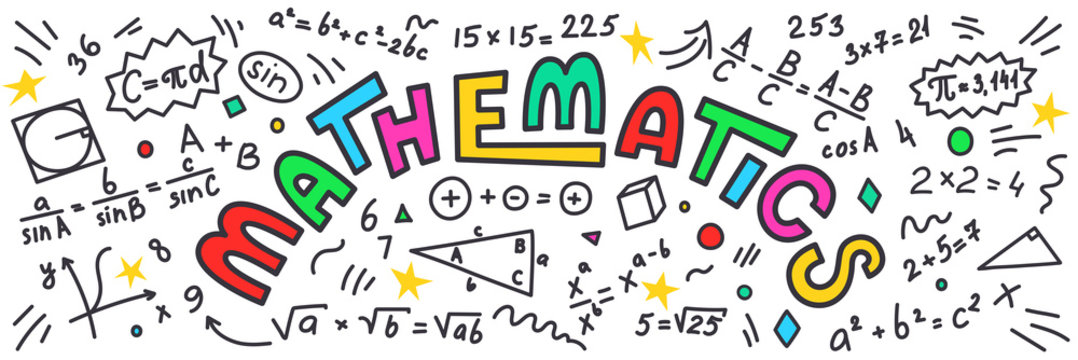Class 9 Mathematics Olympiad, known as the International Mathematics Olympiad (IMO), is conducted by the Science Olympiad Foundation for classes 1 to 12 every year. This platform is a very opportune one as students can expand their horizon beyond the classroom and learn a subject such as maths with a new method that will make their foundations much more robust and expose them to a lot more knowledge. Therefore, parents and teachers of students studying class 9 are advised to encourage their ward to participate in this internationally acclaimed mathematics olympiad.
Also Read: Tamilblasters ws
However, the preparation for the International Mathematics Olympiad (IMO) can seem more intimidating than it is. Nevertheless, with the proper guidelines and help from teachers and online information, students can become ready to crack this competitive exam and boost their confidence.
Here are some do’s and don’ts that should be followed when preparing for the International Mathematics Olympiad (IMO):
- Do not wait till the last moment to start preparing for the International Mathematics Olympiad (IMO). This will not only set you back from your peers but also leave a lot less time for revision and other doubt solving.
- Do not refer to the syllabus and examination dates from simply any website. It is essential to verify if the source of information is authentic before trusting it. Furthermore, sensitive particulars about a competitive exam like the International Mathematics Olympiad (IMO) should be carefully noted to avoid missing any critical deadline like the closing of forms date or the final exam date itself.
- Do: Prepare a timetable or study schedule before starting your preparation. This helps effectively divide time between the start date and the exam period and shows you how much time you can spare for revision and other last-minute doubts and concept clearing.
- To utilize time whenever possible. Practicing a few sums in between study breaks or between school and other leisure activities right from the beginning can help you stay motivated towards your goal from the stat itself, and also the practice can prove to be very beneficial for the actual examination.
- Do: Practice as many mock tests as possible. Mock tests and practice papers create an environment for the student that mimics the authentic atmosphere for the examination hall, and therefore the more mock tests the student attempts, the more he gets used to the pressure of the limited period and stress of doing well in the exam.
- Do not waste a lot of time mulling over a single topic, especially during the last few days before the exam. This will create unnecessary anxiety over not having completed the syllabus and distract and take away the precious time devoted to revision.
- Do not try to study mathematics theoretically. Maths is a subject that requires a lot of practice; therefore, just reading through the textbook and understanding the concepts is not enough, especially while preparing for an examination like the International Mathematics Olympiad (IMO). Question banks and workbooks should be practiced along with mock tests to prepare for the olympiad fully.
- Do not stress about the result even before attempting the exam. It is essential to have faith and believe that what you have studied and your knowledge is enough. Taking hourly breaks between intense study sessions can improve productivity, reduce stress, keep the body active, and not let it be idle for long.
- Do focus on your strengths and weaknesses while evaluating mock tests. Then, when the practice papers result arrive, it is essential to dissect and analyze them to find concepts that the student is still weak in while also finding out their strengths. This can help devise a strategy as to which section to cover first while writing an exam that can be finished as quickly as possible while which area would need a bit more time.
One needs to keep in mind these simple do’s and don’ts to make their International Mathematics Olympiad (IMO) preparation an experience they can be proud of and get something out of. If this simple methodology is followed, the student might be able to clear the examination and even get a good score and qualify for level two of the SOF International Mathematics Olympiad (IMO).
To avoid any confusion regarding the syllabus for the class 9 mathematics olympiad, which is derived from the amalgamation of the CBSE, ICSE, and the State Board, the syllabus is compiled below for the benefit of the students.
Syllabus for class 9 mathematics olympiad
Class 9 is a crucial first year of high school, forcing students towards a much vast syllabus that they find difficult to study at a get-go right before the exam. Therefore, the syllabus should be collected and analyzed before starting preparation. Many students might even feel pressured because of the heavy syllabus, but participating in the friendly competitive exams of the International Mathematics Olympiad (IMO) can be an enjoyable way to cover the entire syllabus and not feel stressed.
The IMO Maths Olympiad Previous Year Question Paper Class 9 is well-rounded and exposes students to higher analytical and critical thinking skills. In addition, having a solid foundation of the mathematics subject in these early years can encourage students to take up more mathematics-related fields later in their careers.
Here is the complete syllabus for the class 9 mathematics olympiad:
- Number System
- Algebraic Expression
- Linear Equation in Two Variables
- Comparing Quantities
- Probability & Permutation Combination
- Lines and Angles
- Triangle
- Circle
- Quadrilateral and its Area
- Mensuration
- Data Handing
- Logical Reasoning
This well-rounded syllabus is more than enough for students to prepare for class 10 mathematics. If combined with hard work and self-evaluation, students can achieve excellent scores in the upcoming International Mathematics Olympiad and also, at the same time, solidify their mathematics basics. Students should follow these tips and be consistent with their practice to reach their set goal for the olympiad.









